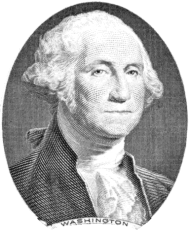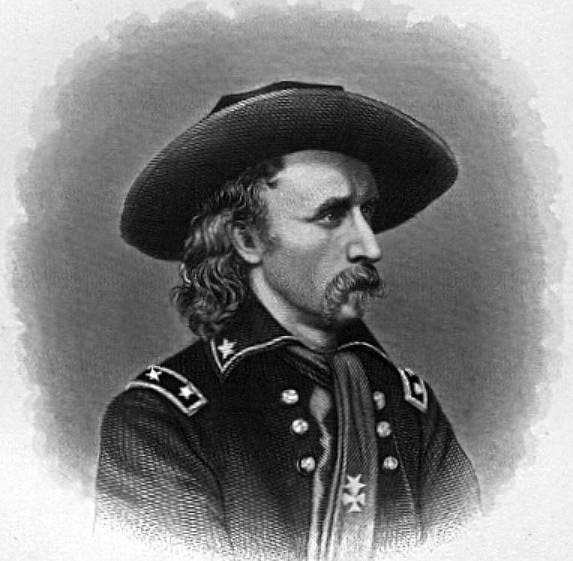The problem with judging people of the past is that they are always people of their time. What is Custer without a culture ready to celebrate him for killing NDNs?
Will Eisner has a recurring character in the Spirit that, because of of the time he was creating in, has the look of a racist caricature of a black man. Eisner correctly explains that character is written well and is not a racist stereotype outside of how he's drawn--but the drawing is no less racist. Generally Eisner is revered and his racist drawing are excused for the time in which they were drawn.
Custer wasn't the greatest NDN killer, the most racist NDN Hater. He's just famous, which was more his motivation than killing or hating ever was.
Here's a clue for you: The legislation authorizing the Trail of Tears was hotly debated for a long time. It passed by only one vote, meaning almost half of Congress opposed it. To claim now that the Trail of Tears was a product of its time and people didn't know any better is simply false. Proponents knew what they were doing was morally wrong because their opponents told them so at the time.
Same with the conquistadors, the Pilgrims, and so on down the line. Critics spoke against the decimation of Indians at the time. It didn't take a modern perspective to see that people were breaking God's commandments. Intelligent and moral people spoke up then because the conquerors were violating their beliefs, not ours.
Slaveowners didn't know better?
As for Will Eisner...good for him if he only drew the black character as a racist stereotype. Every other black character of that era acted as badly as he looked. If Eisner (sort of) knew better, why didn't everyone else emulate him? Why was he the exception rather than the rule?
We could go down the list of famous Americans: Eisner, Stan Lee, Edgar Rice Burroughs, L. Frank Baum, Mark Twain, Theodore Roosevelt, Abraham Lincoln, Thomas Jefferson, George Washington, et al. Who cares if people revere them? Or excuse their racism? Unlike you and other apologists, I don't make excuses for racism. I call it like it is, or was.
The slavery argument is a good one for making the point clear. At the time of the constitutional convention, roughly half of the population knew slavery was wrong and said so. The other half knew slavery was wrong but denied it because they were greedy, selfish bastards. The two sides fought bitterly over this issue before forging a compromise that satisfied no one.
There's no "people of their time" exception for Washington and Jefferson just because we revere them now. They were great in some ways and mediocre or bad in others. As far as I'm concerned, owning slaves is enough to knock them off their pedestals.
This complexity may be too much for you and most Americans to handle, but it's not for me. In many ways we're better people than Washington or Jefferson because we're not immoral slaveowners. Unlike them, we're not ignoring the moral voices that tell us racism is wrong.

Today the idea of one race being superior or another inferior in an intrinsic manner is considered ridiculous and inflammatory and if you defy that convention it places your thinking in a lunatic fringe.
That was not the case in Custer's time. What the thinker thinks, the prover proves and in Custer's time all kinds of racism was considered a rational point of view. The natural way of things is that the monied interest is always right and the opposition is always wrong--to hell with God's commandments!
That past racists thought their views were rational is irrelevant. Whatever the source of their beliefs, a large portion of the population disagreed with them. These people presented their arguments in public and explained why the racists were wrong.
The non-racists (or semi-racists) told the racists that their views were immoral. I.e., that they obviously violated their Christian beliefs. And that their views were irrational. People like Ben Franklin presented firsthand evidence that Indians weren't simple savages. That the stereotypical beliefs of most Americans were demonstrably false.
In short, things were no different then than they are now. People held racists beliefs. The evidence at the time proved them wrong. They ignored the evidence because being racist gave them economic, social, and psychological benefits.
Back to Custer
Custer was the product of a time where a large number of people told him he was a fool. He ignored them because he was a fool. It had nothing to do with your first argument: that nobody knew any better in the olden days. And nothing to do with your second argument: that Custer's approaches to Washita and Little Bighorn were justified because they were "rational." They weren't rational and many Americans said so after each incident.
I'm not sure what the experts believe, but my impression is that Custer would've been court-martialed eventually if he hadn't been killed first. If so, how does this square with your claim that most Americans thought he was acting rationally? Answer: It doesn't.
As usual, you have no evidence for your imaginative claims. You're making stuff up because you don't understand how people actually thought. Many people supported Custer, which gave him cover for his actions, but many people opposed him. There was no blanket belief that killing Indians was "rational" or acceptable.
Since you haven't challenged my assertion, I'll simply repeat it: To claim that America was united for the Indians' extermination and Custer simply went along with the tide shows a profound ignorance of history. Custer killed Indians because he wanted to, because he chose to. And not because everyone told him he was doing the right thing.
For more on Custer, see Why No Wounded Knee Monument? and Custer Country in Montana. For more on the subject in general, see Those Evil Europeans.


1 comment:
For more on the subject, see "Product of His Time" = Rationalization.
Post a Comment